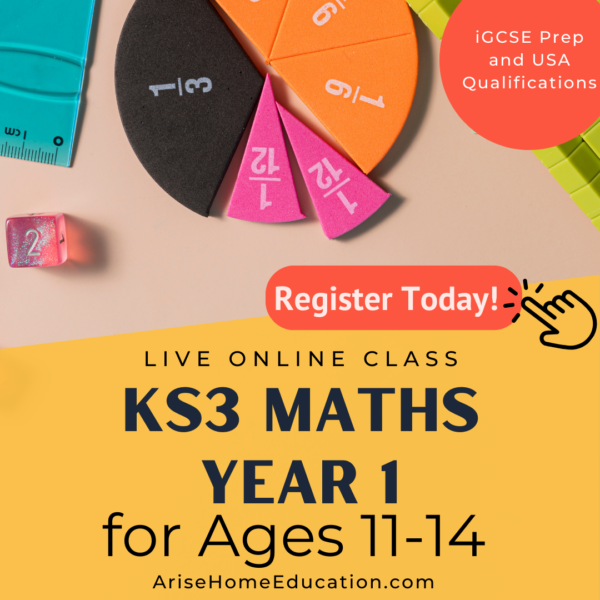Understanding Auditory Learners and Their Preferred Learning Style
Auditory learners excel in environments rich in sound; they tend to remember information more effectively when they hear it! Listening to lectures, engaging in discussions, or enjoying audiobooks can significantly enhance their learning experience. These learners absorb information best through spoken language and may find written instructions or visual materials challenging. For them, participating in activities where they can listen and engage is crucial for grasping and retaining information. They often thrive in a study group where they can communicate ideas and explore concepts together.
Repeating information aloud is a great way for auditory learners to reinforce their understanding, as they benefit from hearing themselves articulate and process information verbally. This technique can be particularly effective for studying and memorization, helping them solidify important concepts through auditory feedback. Additionally, incorporating music or rhythm can make learning more enjoyable and assist with memory retention, transforming it into an exciting challenge instead of a tedious task. Encouraging storytelling can also ignite their creativity and deepen their understanding by connecting new information to real-life experiences.
Auditory learners tend to perform best in settings that accommodate their learning preferences, allowing them to leverage their listening abilities. By integrating auditory elements into their study habits—such as listening to podcasts, engaging in discussions with classmates, or using sound-based mnemonic devices—they can significantly enhance their learning and achieve academic success. By recognizing and embracing their unique, individual learning styles, auditory learners can tap into the power of sound to enrich their comprehension and retention of information.
Different Ways to Encourage Student Success in Homeschool Settings
Incorporating music into homeschool settings is a delightful and effective method to enhance student success, particularly for those who learn best through auditory means. Utilizing songs and melodies to reinforce lessons helps students remember information more easily, as catchy tunes make learning enjoyable. Moreover, audio resources like podcasts and audiobooks can captivate auditory learners, offering a variety of content that allows them to absorb information in a different way.
Another excellent approach for fostering student success at home is through discussion time. Promoting group work, discussions or debates encourages verbal processing and helps students gain a deeper understanding of the subject matter. By interacting with various individuals, they can explore diverse perspectives and sharpen their communication skills.
Engaging in interactive listening activities, such as storytelling sessions where students can listen and respond, can further enhance comprehension through active participation. When students are involved in the storytelling process, they are more likely to remember information and form meaningful connections, regardless of the materials being used.
Additionally, rhythm and rhyme can be incorporated to create enjoyable and effective memorization techniques. By using rhymes or chants, students can transform the memorization process into a fun and successful experience.
Engaging Activities for Auditory Learners
Auditory learners flourish when they can absorb information through sound, so it’s crucial to include hands-on activities that align with their main learning styles. One enjoyable way to nurture auditory learning is by creating soundscapes, allowing this type of learner to express their understanding in creative formats like podcasts or audio diaries. This approach lets them delve into topics from a fresh perspective while showcasing their knowledge in a distinctive manner. Storytelling sessions are also fantastic for auditory learners, giving them the chance to narrate stories or produce podcasts about subjects they love, all while improving their communication skills and deepening their comprehension of the material.
How Auditory Learners Process Information
While different styles of learning can benefit from mind maps, auditory learners have their own unique way of processing ideas. They often find storytelling and discussions to be the most effective means of sharing what they’ve learned from their homeschooling experiences and weekly study plans. You might even see your teens developing their own techniques to tackle challenging subjects like chemistry and physics in order to find the best way of learning these subjects.
Group discussions serve as an excellent hands-on activity that promotes auditory learning by encouraging collaborative environments. Homeschooled teens particularly enjoy lively group conversations or debates on various topics, making it a perfect chance for them to actively engage and learn from their peers. This not only enhances their grasp of the subject matter but also helps them cultivate essential communication and critical thinking skills.
Additionally, role-playing activities can bring concepts to life in a fun way, allowing auditory learners to dive into the content and make meaningful connections through active participation. For those who love music, turning lessons into catchy songs or jingles can be a delightful and effective method for retaining information. By weaving music into the learning process, home educators can help auditory learners grasp key concepts more smoothly and connect with the material in a way that resonates with them. Whether through sound-based projects, group discussions, or musical lessons, there are countless creative hands-on activities that can bolster auditory learning and enrich the homeschooling experience for these learners.
Fun and Engaging Activities to Boost Auditory Learning
Integrating audiobooks into lesson plans can significantly increase student engagement and understanding of new ideas. The first step is to select captivating titles that ignite students’ interest and curiosity. By choosing audiobooks that hold your homeschooler’s attention, you can keep them motivated and actively participating in the learning journey. Complementing these audiobooks with activities like discussions or creative projects can make the experience more vibrant and interactive, allowing students to apply their newfound knowledge in practical ways.
Creating an inviting atmosphere for audiobook listening is another enjoyable way to foster a productive learning environment. Setting up a cozy space with comfortable seating and minimal distractions can help homeschoolers concentrate better on the material. Encouraging them to take notes while listening can promote active engagement and aid in retaining critical information. This practice can also sharpen their critical thinking skills as they jot down intriguing ideas or questions that come to mind during the session. These strategies can instill positive habits and contribute to their future success.
Technology for Auditory Learners
Utilizing technology to access audiobooks can further enhance the learning experience for students who thrive in an online setting. By using apps or platforms that provide easy audiobook access, students can listen anytime and anywhere. Following the listening sessions with discussions in a group setting or shared reflections can deepen their understanding of the material and help them connect the concepts presented in the audiobook. This reflective practice can encourage critical thinking about the content and how it relates to their learning journey. Online education is well suited for the auditory learning style student.
For auditory learners, mind maps can be beneficial, but they often process ideas differently. Storytelling and discussions tend to be the best methods for them to express what they’ve learned from their homeschooling experiences. You might discover that your teens develop their own unique learning strategies to tackle challenging subjects like chemistry and physics.
Music, Group Discussion, and More
Group discussions serve as an excellent hands-on activity that supports auditory learning by promoting collaborative learning environments. Homeschooled teens particularly enjoy engaging in dynamic group conversations or debates on topics that interest them. This provides a fantastic chance for auditory learners to actively engage and learn from their peers, reinforcing their comprehension of the material while honing their communication and critical thinking skills. Role-playing can also bring concepts to life in an engaging manner, allowing auditory learners to immerse themselves in the content and make connections through active involvement.
For auditory learners who love music, transforming lessons into catchy songs or jingles can be a delightful and effective way to help them remember information. By weaving music into the learning experience, home educators can make it easier for auditory learners to grasp key concepts and engage with the material in a way that resonates with them. Whether through creating sound-based projects, participating in group discussions, or singing lessons, there are numerous creative, hands-on activities that can support auditory learning and enrich the overall homeschooling experience for these learners.
Customizing Education: Adapting to Different Learning Styles in Your Homeschool
When designing your homeschool curriculum to accommodate various learning styles, it’s essential to focus on strategies that benefit auditory learners. These students excel with verbal communication and sounds that help them grasp concepts better. One great approach is recitation, where your child verbally explains what they’ve learned. This not only solidifies their understanding but also boosts their confidence in speaking. Additionally, using sound cues or mnemonic devices that incorporate auditory elements can enhance lessons and aid memory for these learners. Both individual and group activities provide diverse opportunities for learning and review throughout the week and can be done almost anywhere.
Incorporating music into your lessons can also be a fantastic way to engage auditory learners. Using songs and rhythms to convey information can significantly improve their retention, as the material becomes more memorable when paired with music. This method not only makes learning fun but also aligns with their auditory inclinations. Moreover, discussing subjects aloud can greatly benefit these learners, as verbalizing their thoughts helps them process and remember information more effectively. Encouraging open dialogue allows them to deepen their understanding through conversation.
To further support auditory learners, providing access to audiobooks or podcasts can be incredibly helpful. These audio resources can make learning more engaging for students who prefer listening over reading. Additionally, incorporating activities that involve memorization and presentation—like learning and reciting excerpts from classic literature or speeches—can cater well to their specific learning style. By integrating these strategies into your homeschooling approach, you can create a more inclusive and effective learning environment for students who thrive on auditory input.
Recommended products
Homeschool Curricula for Auditory Learners
For auditory learners, adding audio resources to your homeschooling can really boost their learning journey. Try using podcasts, audiobooks, and recorded lectures from online courses to keep things engaging and fun. By listening instead of reading, auditory learners can grasp and remember information more easily. With teenagers, foster discussions with family about what they’re learning online. This is a fantastic way to support their auditory learning style. Create a collaborative atmosphere where your child feels comfortable asking questions, sharing ideas, and having meaningful conversations about their studies.
Incorporating rhymes and songs can also be incredibly beneficial for auditory learners, making memorization enjoyable while stimulating their cognitive skills. Utilizing music and rhythmic patterns helps them retain information in a way that aligns with their unique learning preferences. Additionally, integrating storytelling into lessons can captivate their interest and improve information retention. By weaving engaging narratives into your curriculum, you can create a more memorable learning experience.
Setting up listening stations in your homeschool space can help reduce distractions and promote concentrated learning for auditory learners. By establishing a dedicated area with headphones and audio materials, you can offer a peaceful and immersive environment tailored to your child’s learning style. By tailoring your teaching style, and putting these ideas into practice, you can make homeschooling more effective and enjoyable for auditory learners.
Live Courses Teens Love
Most Common Learning Styles
- Visual learning style – learn best with visual aids.
- Auditory learning style – appreciate course materials that allow them to listen and learn – like audiobooks.
- Kinesthetic learning style – these kids love learning and physical movement at the same time.
Are Arise Live Classes A Good Fit For Your Teen?
Grab a live lesson bundle and learn about the course, the tutor, and the weekly homework load.














1 thought on “Auditory Learners | Tips for Different Learning Styles”
Comments are closed.